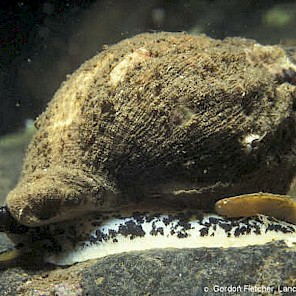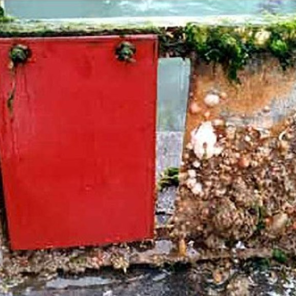| | This week in Friday Ocean Findings we feature two assessments on Tributyltin (TBT), its concentration in sediments, and its effects on marine gastropods.
TBT and other organotin compounds are found globally throughout the marine environment. Organotins have many applications and TBT was extensively used in antifouling paints on watercraft, buoys, and mariculture equipment, which led to the widespread distribution of TBT in water, sediment, and biota.
TBT use was banned in the late 1980s for smaller vessels and has been prohibited on all vessels and offshore installations since 2008, or ships must bear at least a barrier coating. However, inputs of TBT to the aquatic environment are likely to continue, from countries not in compliance with the ban, from disused vessels or installations, from land-based applications and by redistribution of contaminated soils and sediments.
These other assessments, when viewed as part of the QSR 2023, help build a picture of the overall condition of the marine environment of the North-East Atlantic and progress towards achieving our vision of a clean, healthy and biologically diverse North-East Atlantic Ocean, which is productive, used sustainably and resilient to climate change and ocean acidification. The results will also be used by OSPAR Contracting Parties to inform policy decisions.
We hope you enjoy these Indicator Assessments. Please do contact us with any comments at [email protected] #OSPARprotects |  | | Status and Trends in the Levels of Imposex in Marine Gastropods (TBT in Shellfish) | Following global bans on the use of tributyltin and other organotins in antifouling paints there has been a marked improvement in the reproductive condition of marine snails since the Quality Status Report 2010. Image: © Gordon Fletcher |  READ MORE
READ MORE |
| |  | | Status and Trends of Organotin in Sediments in the Southern North Sea | Following the total ban on tributyltin in marine applications, mean concentrations in sediment have measurably reduced (with a trend of approx. -10% per year) in the Southern North Sea but no monitoring station is yet significantly below the EQS value proposed by Sweden of 0,8 µg kg-1 at 2,5% OC (https://www.ospar.org/documents?v=43227) assessment criteria. The need for follow-up of the situation is still apparent. |  READ MORE
READ MORE |
|
|
| | |
|